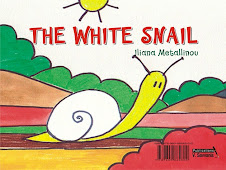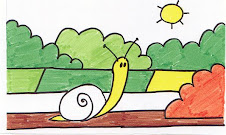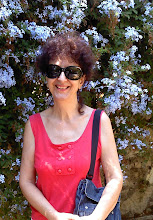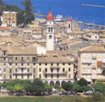
The shop and soap factory of Patounis family are located in a central spot of Corfu town, at SanRoco square. It is easy to find since it is near the Dassia bus stop, on the way to Ionian University. Don’t expect to see something big or spectacular; it is a pure traditional place that is worth visiting as it promotes natural products. Both residents and tourists should visit it and learn all about the soap making process.
We visited the soap factory for you and interviewed Mr.Patounis. We met him at the shop which is the front part of the building. Behind the shop there is a huge, oblong room which is the actual factory where the soap production takes place.
Would you please tell us about this place?
This place was built at the end of the 19th century and still operates the same way it used to, while at the same time it maintains a big part of the old equipment. As a result, last year it was listed with the Ministry of Culture as a monument of Industrial Archaeology along with its equipment and use. This place is a live museum which is being visited by both Greeks and tourists. We welcome school visits and other educational groups.
Tell us about your family. Where did they start this business?
The first soap factory was set up in Zakynthos in 1850. It dates back to 5 generations! The soap business was started by my great-great grandpa in 1850. That was the first soap business in Greece, and we are now the last we keep on making traditional green soap.
The Corfu plant built in 1891, preserved with its functioning tools and equipment, constitutes a living memory of an old splendid local tradition.
Let’s talk about the soap you make. Any important details you would like to share with our readers?
Pure soap is considered the most adequate skin cleanser since it unblocks skin pores by effectively removing dirt, oily substances and dead cells.
The special characteristic of our soap is that it is being made from natural raw materials and the final product does not contain any additives.
Mr.Patounis is now showing us the inner place-the factory- where the visitor can see the production of soap, stack
 s of dried soap and the equipment.
s of dried soap and the equipment.As you can see, we still operate in the same traditional way. You can make your own soap at home if you wish. It is easy. It only takes one hour to do so. Here, it takes 10 days. We’ve got 3 types of soap.
• We use local 100% pure virgin olive oil to produce soap suitable for the face and baby care. This type has limited lathering capacity but it is distinguished for its mild action on sensitive skin. This is the Olive Oil Soap.
• Another type of soap is the Olive-Palm Soap that contains 80% pure virgin olive oil and 20% edible Palm-kernel oil. This is a mild soap with rich smooth lather.
• The legendary product is, however, the Green Olive Soap. It is made of olive pomace oil which contains the olive Chlorophyll and is distinguished for its disinfecting properties and wide range of applications.
The above soaps are made using only the basic raw material of traditional soap manufacture, (oil, soda, sea salt and water), with no additives.
I have a question about the Green Olive Soap. Why is it called Green soap-it looks brown actually!
This kind of soap is produced via the heated process. When fresh it is green but later on when it dries it turns to brown. This soap is practical as it is very cleansing. There is also the Green laundry soap which is very effective.
We noticed some tools on a counter. One looks like a hammer.
There are two tools over there. What are they?
The one that looks like a hammer is the stamp of the product. We stamp the soap bars with it. The other one with the long handle and the knife at the edge is for cutting the soap. These tools are the original ones.
How often do you have a production?
In winter we usually have it once a week. In summer, every two weeks.
Any other product you plan to make in the future?
We are preparing a formula suitable for the washing machine. But it will take some time. Soap flakes are used for aphides in the fields.
What else do you sell in the shop?
Apart from soap we sell items for farmers.
Thank you very much! That was a very interesting and educational interview.
Contact info
If you would like to contact Mr.Patounis, email him at
info@patounis.gr
Tel.No. +30 26610 39806
Fax.No. +30 26610 20704
The shop/factory is at
9, I.Theotoki,
49100 Corfu
Greece






6 comments:
Well that was quite informative, the soaps given here seem to be of better quality interms of their effect on the skin as these are made from natural ingredients.
Karachi Hotels
Thank you for visiting...I am also going to write about more traditional places on the island. There's a place they make good wine coming up soon...
Liana
I enjoyed learning about this place and look forward to your visit to the wine maker. I hope so much that these traditional businesses will be successful linking us in ordinary ways to the past. There's an olive processing factory just below Ano Korakian that I'd like to visit when it's busy early in the year, and I'd like to know about the local ginger beer. My stepfather wrote about these things and was quite well known on TV in the UK
http://en.wikipedia.org/wiki/Jack_Hargreaves
He taught me to be interested in local manufacturing and traditional craft. S
Simon, thank you for visiting.
The Soap factory has also recently appeared on Alpha TV!(It was after the publication of my article). I plan to visit the wine maker next month. Thanks for the ideas! I already have an article about the olive factory in Korakiana (I think you mean the one near the football pitch? His local nickname is Bourlakos.
I will search for the ginger beer. I can't remember the name of the maker-but I know where they sell it. I will visit your link now.
Simon, I read about Hargreaves and your family. How very interesting! You've got a big big family. His name sounded familiar to me-maybe it was in the 70s, when I was living in London and was watching a lot of TV, that I heard of him. I like the pictures you collected.
L.
Post a Comment